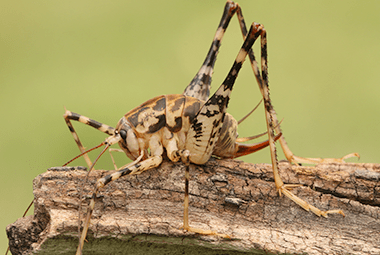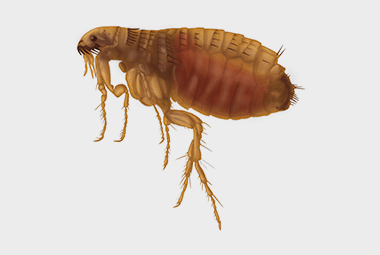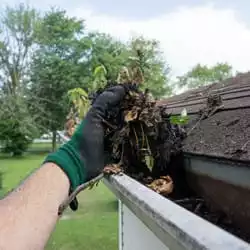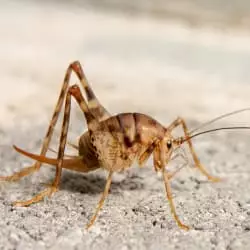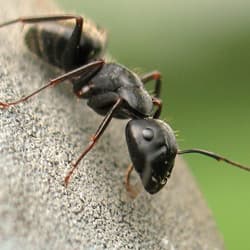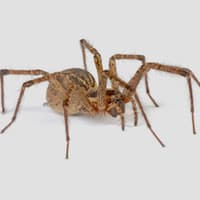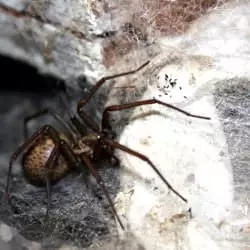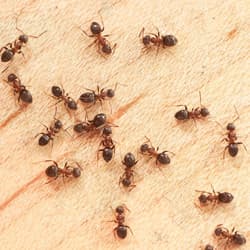Summer pests are coming, are you ready? Perhaps you have already seen some pests around your home, but there are still more to come. Cockroaches, termites, mosquitoes, wasps, and hornets are on the way! So, what can you do to rid your home and yard of the most common and dangerous insect pests that are active in summer? Once the battle of dealing with summer pests is under control, you can get outside and enjoy the summertime to its fullest.
First, let’s examine the dangers of these pests:
Cockroaches are dangerous to both humans and pets. They walk through garbage and travel through sewers before they enter your home. During that time, their legs and bodies collect a variety of bacteria that they can then spread inside your home through contact with food and the surfaces inside your home, as well as through their feces. This bacteria can cause illnesses that can cause vomiting, fever, and diarrhea. Their shed skins and feces can also lead to asthma attacks in some people as well.
Termites are dangerous to structures. They live underground but eat and travel through the wood to gather cellulose to feed the members of their colonies. They stay very well hidden underground or inside the wood and work virtually silently as they hollow out wood where they may create a secondary or satellite nest. It can take months, or even years, to detect an infestation, and by that time your home may already have significant and costly termite damages.
Mosquitoes are now known to carry some dangerous diseases that they can transmit to humans and pets through their bites. These diseases include malaria, dengue fever, yellow fever, encephalitis, West Nile virus, chikungunya, and Zika virus. West Nile virus is the most common mosquito-borne illness in the United States and can lead to confusion, weakness, high fevers, and can sometimes even put people in a coma.
Wasps and hornets can sting humans and pets. Their stingers are smooth and can sting their victims repeatedly. Hornets are just larger wasps; both will defend their nests aggressively if they feel threatened. Both wasp and hornet stings are painful. Some people can have a serious allergic reaction to these stings and may require medical attention.
Each of these pests are dangerous in one form or another, and it is important to eliminate them and the threats they cause, but trying to get rid of these pests without the help of a pest control professional can be dangerous. Russell’s Pest Control can help you control these summer pests and provide services to prevent them in the future.
Here are some helpful tips to help you to get ready for summer pests:
- Keep vegetation trimmed back and away from your home
- Make sure your chimney caps are tight fitting and vent covers are secure
- Repair broken, damaged, or loose roof shingles and window screens
- Seal any gaps, cracks, and holes in exterior walls, windows, and doors
- Reduce moisture in and around your home
- Fix leaky pipes and fixtures right away
- Use a dehumidifier inside your home where moisture is a problem
- Avoid wood to soil contact around your home
- Keep your yard free from piles of wood and debris
- Reduce standing water around your property
- Take trash out on a regular basis
- Store food inside airtight containers
- Clean up food and drink spills right away
- Keep counters clean and free of crumbs
- Inspect bags, boxes, and packages for pests before bringing them inside
In the end, professional pest control is essential to eliminate these pests, control them, and keep them away. At Russell’s Pest Control, our motto is: “The Power to Prevent, Driven to Protect”. We are here to help in Eastern Tennessee and Knoxville. We offer four Power programs that protect your home against 30+ common household pests, and more! Our programs are Power, Power Gold, Power Plus+, and Power Platinum. Give us a call today to learn more about how we can help you get summer pests under control so that you can get out and enjoy your summer, stress-free from dangerous pests.

